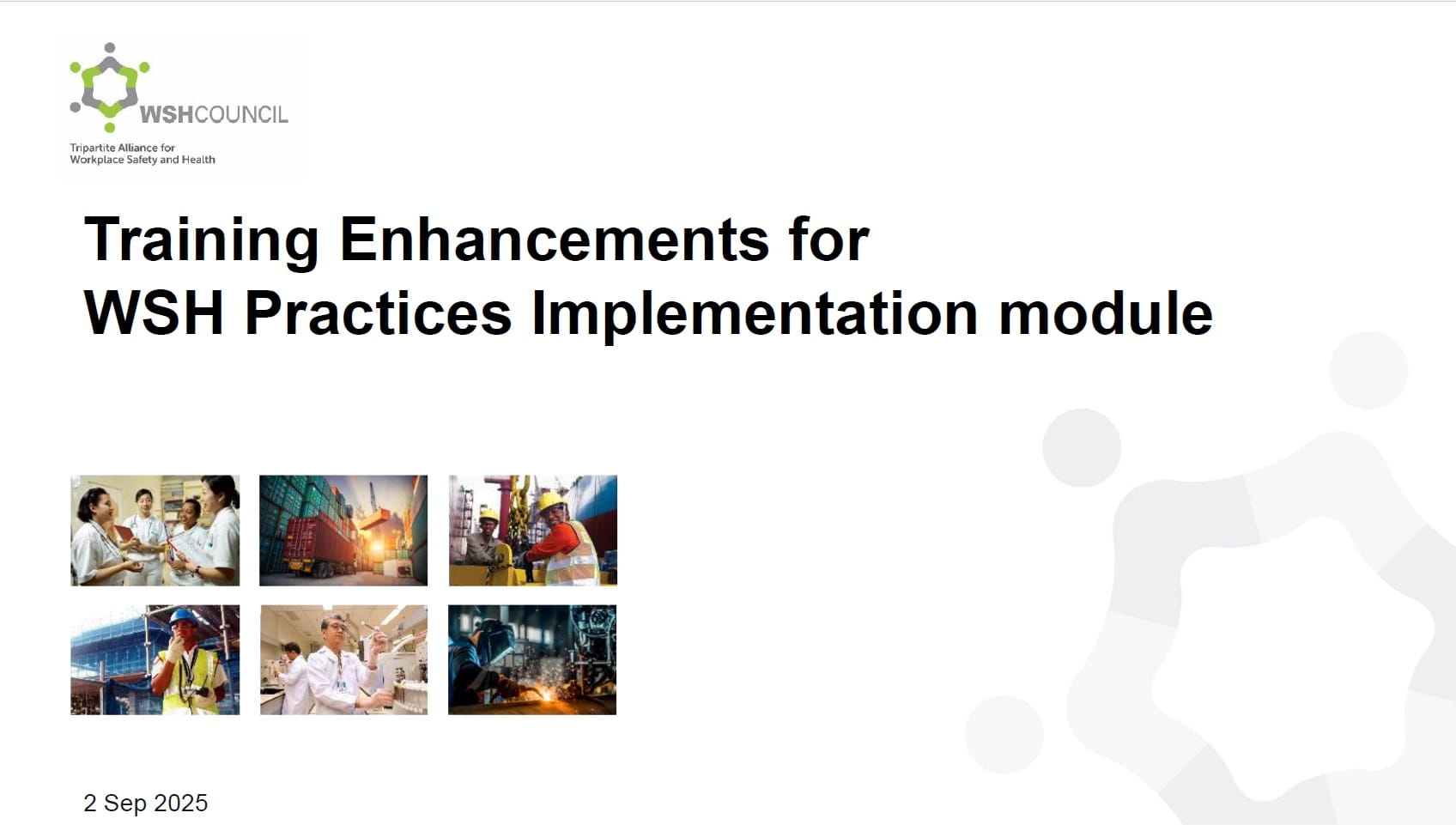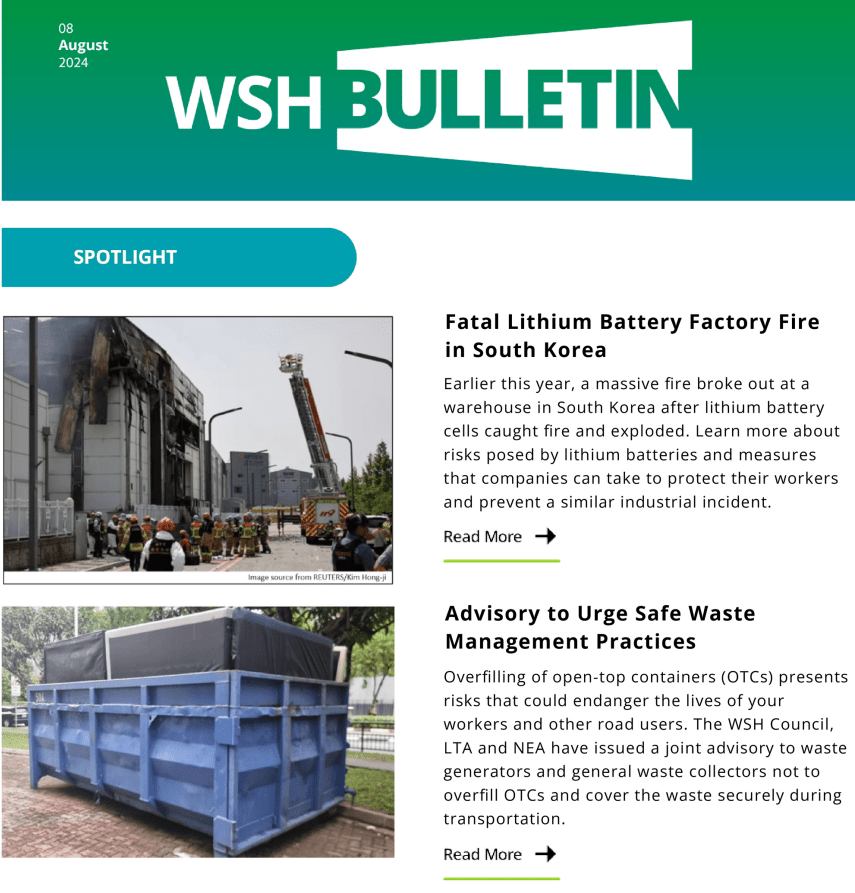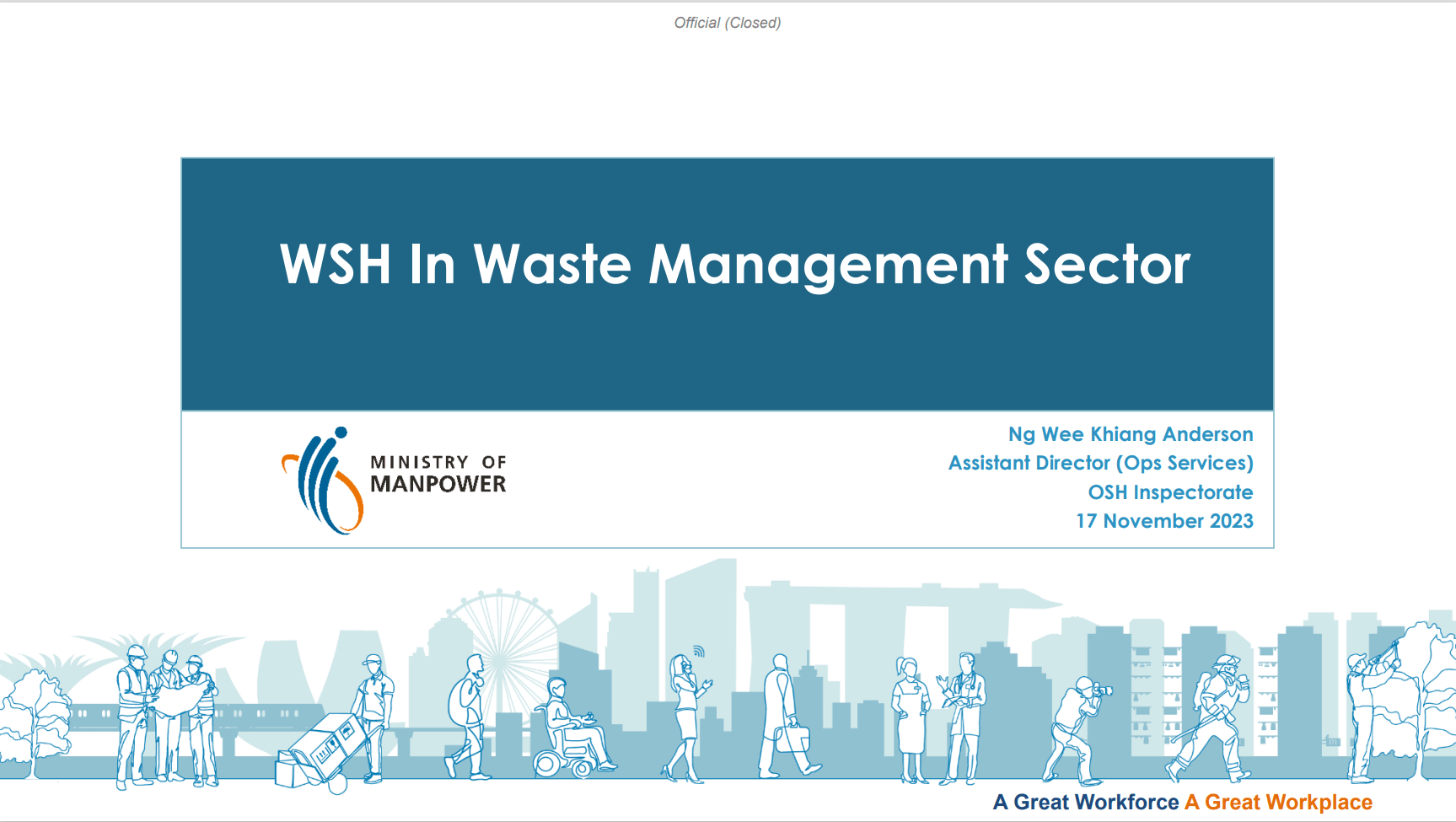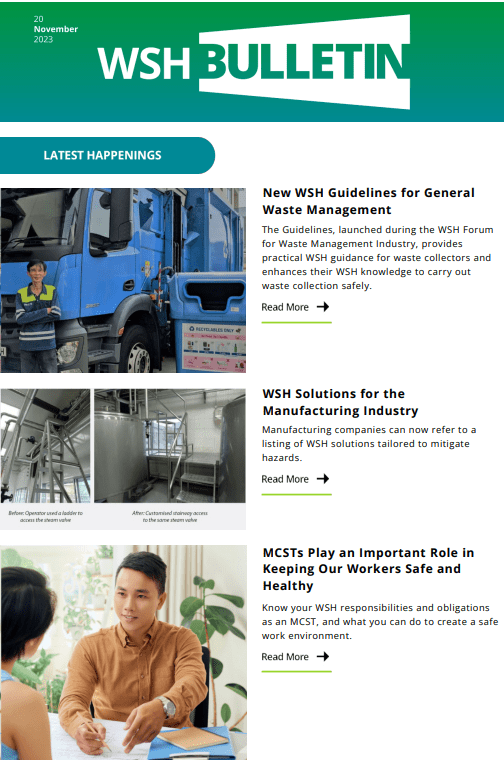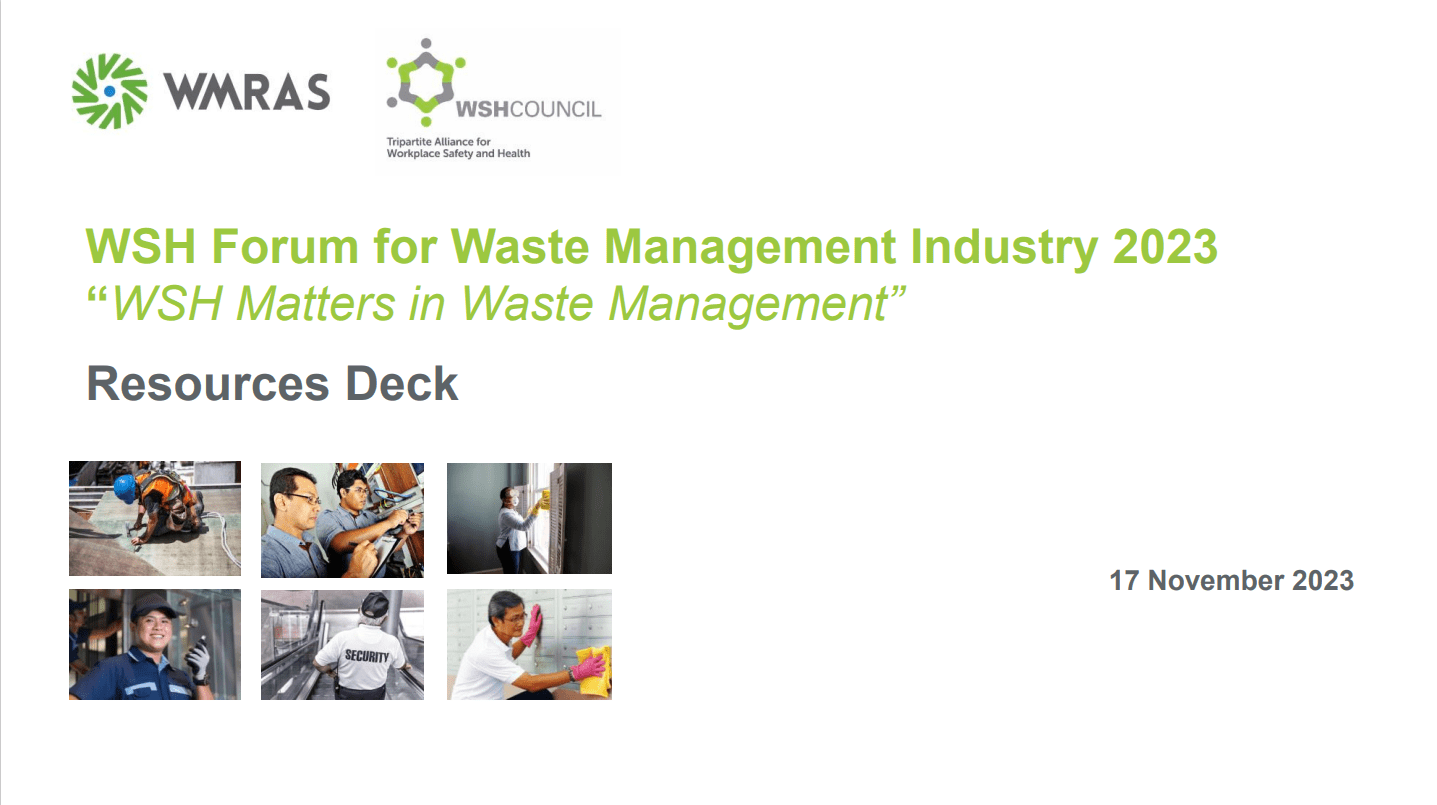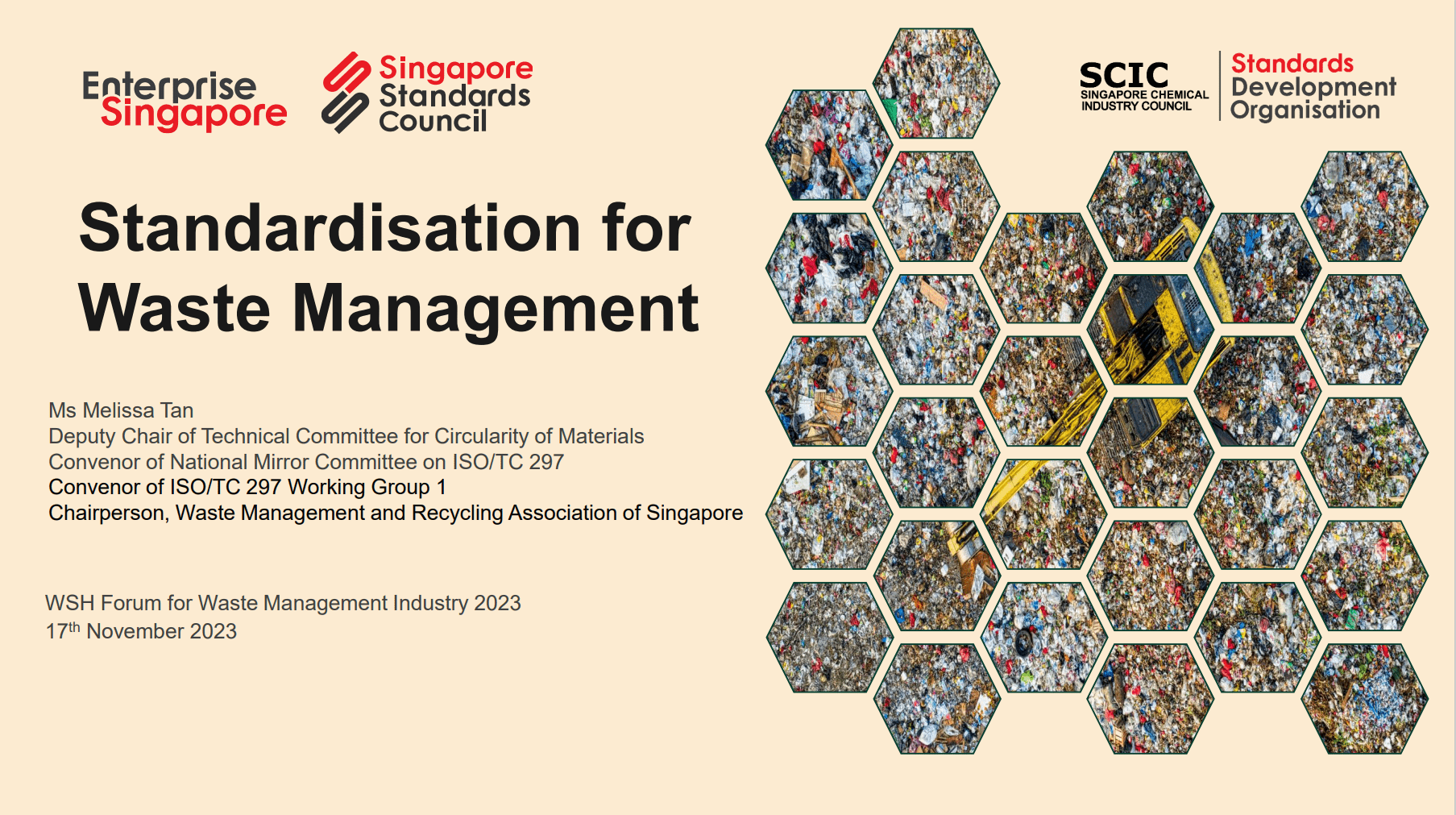Cleaning Services
Learn about the cleaning services industry, its common work hazards and preventive measures.
About the Cleaning Services Industry
The cleaning services industry plays a crucial role in maintaining the cleanliness and hygiene standards of our city.
Cleaners work in diverse workplaces:
- Residential estates
- Industrial buildings
- Offices
- Food and beverage establishments
Many cleaners are also older workers who may be more prone to health and safety risks at work. Their health, safety and well-being become paramount when managing them.
Hazards in Cleaning Services
Some hazards associated with common cleaning activities are:
|
Hazard |
Work Activity |
||||||
|
Mopping |
Sweeping |
Wiping |
Pressurised jet spraying |
Refuse disposal |
Leaf-blowing |
Drain de-silting |
|
|
Slips and trips |
✔ |
✔ |
|
✔ |
✔ |
✔ |
✔ |
|
Poor posture |
✔ |
✔ |
✔ |
✔ |
✔ |
✔ |
✔ |
|
Chemical handling |
✔ |
|
✔ |
|
|
|
|
|
Biological |
✔ |
|
✔ |
|
✔ |
|
✔ |
|
Electrical |
|
|
|
✔ |
|
✔ |
|
|
Caught-in-between objects |
|
|
✔ |
|
✔ |
|
✔ |
Table: Work activity & hazard matrix
Safe Work Practices
During their work, cleaners should observe the follow measures to protect themselves:
Mopping or sweeping
- Stand upright and keep back straight.
- Always wear non-slip shoes.
- Wear rubber gloves when handling cleaning chemicals.
Using electrical equipment (e.g. scrubber, spray jet)
- Keep wiring or hose from tangling or kinking.
- Turn off motor when not in use.
- Avoid tampering or modifying the equipment.
Emptying litter or refuse bins
- Seek help from co-worker to lift bins.
- Avoid contact with the contents. Wear gloves and use tongs.
- Check contents visually for sharp objects.

